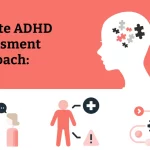
Menopause is a natural biological process that all women experience as they age. During menopause, a woman’s menstrual periods stop permanently as the ovaries stop producing eggs and estrogen levels decline. Menopause typically occurs in a woman’s late 40s to early 50s. However, it can start earlier due to certain medical conditions or treatments like chemotherapy.
What is Menopause?
Menopause is defined as the point when a woman has gone 12 consecutive months without a menstrual period. It marks the end of a woman’s reproductive years and ability to become pregnant naturally. During menopause, the ovaries produce lower levels of the hormones estrogen and progesterone, which control the menstrual cycle. This hormonal change causes the symptoms commonly associated with menopause like hot flashes, mood changes, and vaginal dryness.
When Does Menopause Start?
The average age for menopause is between 48 to 52 years old. However, menopause can start earlier for some women, especially if there is a family history of early menopause or certain medical conditions. Premature ovarian failure before age 40 leads to early menopause. The decline in ovarian function and hormone shift usually lasts for 4-6 years as the body transitions into postmenopause. Some women experience menopause in their late 50s, but menopause after age 55 is considered late menopause.
Should I Visit a Private Menopause Clinic?
For many women, the symptoms of menopause can significantly impact their quality of life. Visiting a private menopause clinic or centre can help provide relief from uncomfortable symptoms. A menopause specialist has advanced training in hormonal health and menopause management. They can adequately diagnose menopause, evaluate your risks for certain conditions like osteoporosis, and recommend an individualized treatment plan which may include hormone therapy.
- Finding an ADHD Expert in London
- What Is Somatic Experiencing Therapy?
- A Guide To Intermittent Fasting For Weight Loss
- ICD-11 Training: Advancing Healthcare Certification
- The Complete Guide to Menopause: What is, When Menopause Starts, and Clinic Treatment
- How to Prevent Foot Fungus
- Menopause changes the life of every woman
- Penis enlargement
What are the Stages of Menopause?
There are three stages of menopause:
Perimenopause: This stage begins several years before menopause as the ovaries gradually produce less estrogen. Perimenopause typically starts in a woman’s 40s and lasts for several years until menopause. During this transition, menstrual periods may become irregular and menopausal symptoms start to appear.
Menopause: This stage begins 12 months after a woman’s last menstrual period. At this point, the ovaries have stopped releasing eggs and menstruation has ended permanently. Symptoms like hot flashes and night sweats are most severe during this stage.
Postmenopause: This is the stage after menopause has occurred, starting 1 year after a woman’s last menstrual period. The risk of conditions like osteoporosis and heart disease increases due to the lack of estrogen, so continued treatment and monitoring may be needed in the postmenopausal years.
Common Symptoms of Menopause
The most common symptoms of menopause are:
•Hot flashes: Sudden feelings of warmth, often accompanied by sweating and flushing of the skin. Hot flashes are caused by changes in circulation from declining estrogen levels.
•Irregular periods: Periods may become longer or shorter, lighter or heavier as hormone levels fluctuate during perimenopause. Eventually, periods stop completely after menopause.
•Vaginal dryness: Lower estrogen levels lead to thinning of vaginal tissues, reduced lubrication, and irritation during sex.
•Night sweats: Hot flashes that occur during sleep, leading to excessive sweating at night. Night sweats can cause sleep disturbances and insomnia.
•Mood changes: Fluctuating hormone levels may lead to mood swings, irritability, depression or anxiety in some women.
•Difficulty sleeping: Hormone changes and symptoms like night sweats can make it difficult to fall or stay asleep.
•Weight gain: Metabolism slows down as hormones decline, making it more difficult to maintain a healthy weight. Exercise and diet changes can help minimize weight gain.
•Loss of libido: Decreased estrogen and testosterone levels lead to a loss of sex drive or interest in sexual activity in some women.
•Dry skin: Estrogen is essential for skin health and moisture. Declining estrogen causes the skin to become drier, thinner, and more prone to wrinkles.
Additional symptoms
Additional symptoms may include forgetfulness or brain fog, hair loss or thinning, and less firm breasts. More severe symptoms could indicate that the hormone changes happening in the body need management through treatment options recommended by a menopause specialist. If this happens it’s advised to call hormone replacement clinic.
Menopause is an inevitable transition for women, but that does not mean it has to be endured without help or relief from bothersome symptoms. Speaking to your doctor about any questions or concerns you have regarding menopause or its stages can help you decide if seeing a menopause specialist is right for you. The journey to menopause may be different for every woman, but with the right resources and support, it can be a more positive experience.






